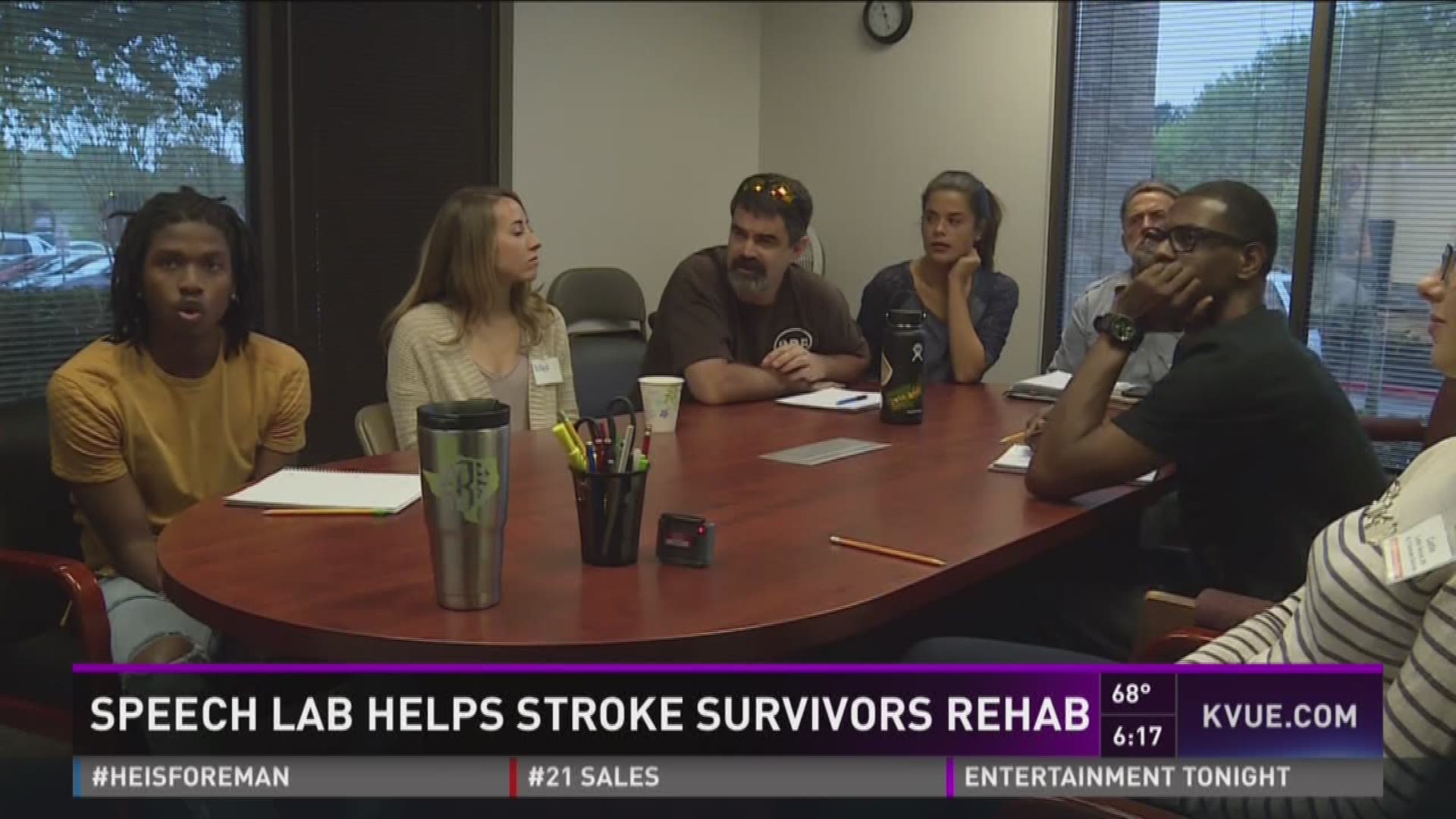The work done by an Austin speech lab to help stroke survivors get back to the life they lost has earned them a national award for their work.
"Invest, investigate," said Robert Meredith as he works on expanding his vocabulary.
Next door, three men are reading "A Tale of Two Cities." Down the hall, a group is playing a word guessing game.
They're all stroke survivors, and therapists at Austin Speech Labs are working with them on their speech, reading and writing. The nonprofit just received the national 2016 RAISE Award for Most Impactful Stroke Organization.
"They feel like they're in a foreign land all of a sudden,” said President and Co-founder Shilpa Shamapant.
For many of these survivors daily life can be frustrating.
"Family members are having to guess every second what you're trying to say,” said Shamapant.
"I like to read, I write," said Craig Dyer, a stroke survivor.
It’s a big difference from two years ago when he couldn't talk, read or write.
"Our therapists here worked really hard and Craig was so motivated to work," said Dyer.
The motivation paid off, when he was able to vote.
"I went last week," said Dyer. "It was great."
"It was so exciting for us to see Craig go vote, because that meant he felt comfortable in who he was," said Shamapant.
Shamapant said the nonprofit works to fill a gap where insurance stops. She said they plan to serve 500 clients in 2016.
Therapy is $10 dollars an hour, but they raise money for the 30 percent of clients who can't afford it.
Tom Hilgendrof used to be a college professor. He was one of the first clients almost eight years ago. Now he's a volunteer, leading a book club.
"We read aloud sometimes, and so it's a neat place to do it, yes,” said Hilgendrof.
He worked with the speech therapists for 3-4 years.
"No words, no sentences, no writing, and now I can read better, I can write my notes,” said Hilgendrof.
Both Dyer and Hilgendrof said it takes time.
"To go back a day, another day, another day,” said Dyer.
"Some strokes have it in six months to a year, and they're a lot better, for me, along time to writing and reading, and it's a process," said Hilgendrof.
"It's not one day, it's not eight weeks, but it's multiple years it's a long term recovery," said Shamapant.
Shamapant said the true reward is the success stories they see each day. Shamapant added a stroke is both treatable and preventable, and that people should watch their diet and work out -- in order to prevent high blood pressure, obesity, and stress, which she says can lead to a stroke.
GO HERE for more information about strokes from the National Stroke Association.
GO HERE to learn more about Austin Speech Labs.

